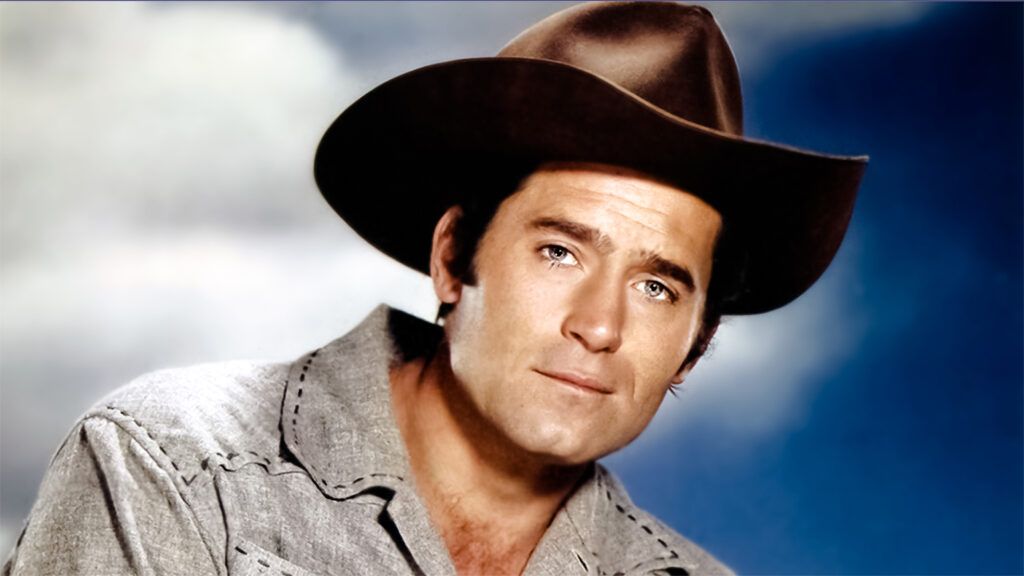I was skiing last May 24, up at Mammoth Mountain, near Bishop, California. I am pretty proficient at most sports, from shark hunting to motorcycling, but skiing is one that I have only recently tackled, which was why I was measuring the steep run before me with such a wary eye.
Finally I shoved off down the slope, gathering speed as I followed the contours of the twisting, irregular terrain. I still don’t know how it happened, but all at once I was tumbling out of control, and then—an abrupt, violent stop.
As I fell, one of my ski poles up-ended in the hard-packed snow. The momentum and my weight as I fell on it drove the pointed tip about five inches into my chest, through the breastbone and into my heart. I rolled over in the snow. The wind had been knocked out of me, and I was in terrible pain.
About 400 feet below, my instructor was looking up at me. I called as loud as I could, “I’m hurt bad—get help!” Then I fell back.
I remember a sensation as of rings of light radiating from my body, as ripples radiate from a pebble tossed into water. At the same time I had a feeling of being propelled through space; and although the pain was still there, I became less sensitive to it.
I suddenly knew that I was dying. With the knowledge came a sense of sharpened awareness. I did not think of a particular person or event; certainly my life didn’t flash before me. But I knew, with an overwhelming conviction, that the Power that had given me life could sustain it—against any odds.
My concept of time underwent a change as I lay there; my existence seemed no more than an instant in eternity, and with a clarity I had never known before, I saw life in a new perspective. Things which had seemed so important simply were not. I had recently gone through a difficult emotional experience, and I recalled it now with a tranquillity that would not have been possible previously.
Although I felt I was slipping away from this earthly experience, I also felt a sense of going on. With it came a sadness that I had not done more with my life, and immediately I had a strong desire to stay, as though there were some unfinished business to take care of.
I said, “God, I’m really in trouble! I can’t help myself. I’m not going to make it, unless You will see me through—and I would like to stay around for a while.” With that, I seemed content to let go.
The next thing I remember is being taken down the hill on a sled-type stretcher used for rescue operations. I suppose I was literally jolted back to consciousness because of the roughness of the terrain. The pain was almost unbearable.
When the doctor examined me in Mammoth, he recognized the necessity of getting me to the hospital in Bishop, some 45 miles away, as quickly as possible.
All in all, close to three hours elapsed from the time I was injured until I went into surgery at Northern Inyo Hospital at Bishop, where the doctors performed open-heart surgery. By then, according to the medical records, I was cyanosed (blue from lack of oxygen) and there was no recordable pulse or blood pressure.
The surgery was on Monday, May 24, and I left the hospital walking, eight days later. I spent three days at the UCLA Medical Center in Los Angeles and then went home. The end, you might say, of a remarkable experience.
But actually, it was merely the beginning.
News of the accident had been carried by the wire services, and I had been interviewed by television newsmen. In the course of the interviews I made a statement which was to change my life. I said that I had asked God for help on the mountain, and that I was satisfied that I would not be here now, if it were not for that prayer.
Then the letters began to pour in. Sacks of them arrived at the hospital, and were forwarded to me at home—from Australia, England, New Zealand, Canada, and all over the U.S.
I expected the usual get-well messages, and of course there were those, too. But the majority have one theme: “Thank you, Clint, for saying what you did. When a big outdoor guy like you will tell the world that he prayed for help, and got it, it strengthens my own faith.”
“I’m not a member of any church,” a Wyoming man wrote, “but what you said up there on the mountain did me more good than all the sermons in the world.”
I have prayed at times in my life before, but it took this experience to help me put things in their proper perspective. I was always a loner; even as a kid, I was shy, an introvert. I really didn’t know how to get along with people. And worry—I was the world’s champion worrier!
But up there on the mountain, I found a new appreciation of life. I realize now that if we are going to accept God’s help, we must accept it in His time and in His way. I have found that many of the problems I thought had to be solved at once can wait. And very often, it is in that time of waiting that the Creator speaks most clearly to us.
The waiting is not always easy, but I understand more fully now the verse from Psalm 62 which has always been a favorite of mine: “My soul, wait thou only upon God; for my expectation is from Him.”—Psalms 62:5
Having made a few records and sung in several pictures, I know the technical value of the little mark which indicates a pause, or rest, in music. But now it has taken on new meaning. John Ruskin made this point in a letter to his young niece, when he wrote: “There’s no music in a ‘rest,’ Katie, that I know of, but there’s the making of music in it. And people are always missing that part of the life melody.”
I don’t intend to miss it anymore!
For more inspiring stories, subscribe to Guideposts magazine.





